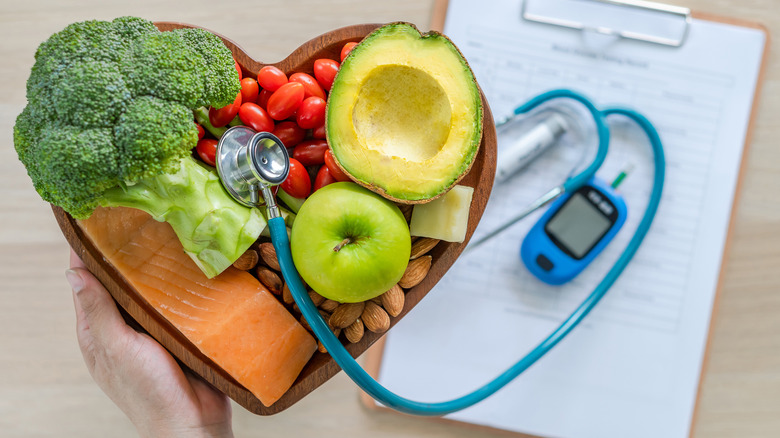Can Cholesterol Be Too Low?
Let's face it – cholesterol gets a bad rap. But regardless of its poor reputation, this fat-like substance is essential for the human body to function properly. In fact, cholesterol travels through the blood and supports the production of certain hormones, vitamin D, and certain substances that help digest foods, explains Healthline.
Too much cholesterol, which is known as high cholesterol, can put you at risk for heart-related diseases and stroke. But too little cholesterol (known as hypolipidemia) can also be bad for your health and it can be a subtle cue that you have a serious underlying condition, points out the Merck Manual. It's also less common than high cholesterol.
Although its impact on overall health is still being researched, there are some risks potentially associated with very low cholesterol levels. According to Healthline, low cholesterol might impact mental health negatively.
In fact, one study reported in Duke Health found that young women with low cholesterol had a higher risk of developing anxiety and depression. The researchers explain that low levels of cholesterol may negatively impact brain health since the production of vitamin D and certain hormones is affected.
In extreme (and rare) cases, WebMD shares that low cholesterol can potentially cause problems such as cancer, brain bleeding, and preterm birth for expecting mothers. Still, more research is needed to confirm the effects of low cholesterol.
What causes low cholesterol and how is it treated?
There are several factors that can contribute to low cholesterol. According to WebMD, some of these factors include malnutrition, malabsorption, anemia, liver disease, and rare disorders. Blood cancers, thyroid issues, genetic disorders (e.g. hypobetalipoproteinemia), and infections like Hepatitis C can also cause low cholesterol, points out Medical News Today.
Normally, low cholesterol is the result of a health condition. More rarely, it can be caused by genes, notes the Merck Manual. Certain medications can also cause cholesterol levels to drop.
Ideally, healthy total cholesterol levels should be roughly 150 milligrams per deciliter (mg/dL), while the low-density lipoprotein (LDL) which is known as "bad cholesterol" should be approximately 100 mg/dL (per WebMD). Low cholesterol happens when one of these numbers drops.
Low cholesterol typically comes with no symptoms, so to find it, a blood test is needed. You have low cholesterol if total cholesterol levels are below 120 mg/dL or your LDL cholesterol is under 50 mg/dL, explains Healthline.
Because low cholesterol has a variety of causes, treatments can vary. If the underlying medical issue is treatable, treating this may bring your numbers safely up, explains WebMD.
In some cases, antidepressants may be prescribed by your doctor if your mental health is affected, points out Healthline. Otherwise, certain vitamins may help, as long as your doctor approves. These include vitamin A, vitamin K, vitamin E, and vitamin D (per WebMD).
If you're experiencing any symptoms or are concerned about your cholesterol, talk to your physician.


